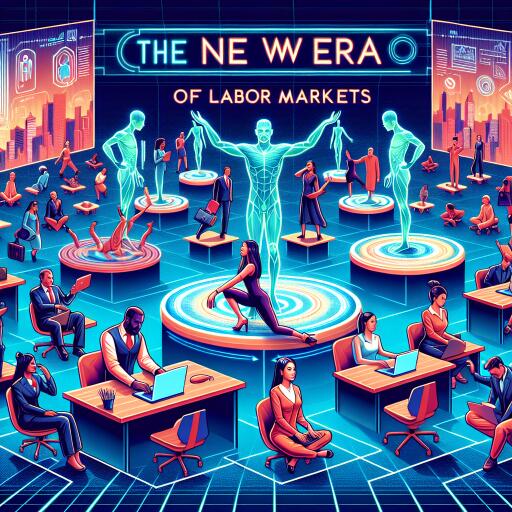Flexibility Demands, Talent Scarcity Defining Dynamics In New Era For Labor Markets
The demands for flexibility in work arrangements and a scarcity of talent are significantly transforming labor markets worldwide. This shift is influencing the entire operation and structure of the workforce, affecting both employees and enterprises alike. As companies grapple with these changes, a nuanced understanding of the evolving dynamics is vital.
The Rise of Flexibility
Flexibility in the workplace is becoming a predominant force, reshaping the employee-employer relationship. This trend is not limited to one sector but is evident across numerous industries, altering expectations and working conditions. Flexibility encompasses various facets, including working hours, location, and contractual arrangements, allowing employees to seek better pay, benefits, and work-life balance. Consequently, businesses are compelled to reevaluate their value propositions to attract and retain the necessary talent to sustain their growth.
Addressing Talent Shortage
In this new era, talent shortages are a critical challenge. The gap between available skills and market needs is particularly pronounced in sectors such as healthcare and information technology. The response to the COVID-19 pandemic highlighted the urgency for flexibility, especially in healthcare, where professionals sought more control over their workload and compensation, leading to the rise of “travelling nurses” in regions like the United States.
Moreover, the pandemic has accelerated the adoption of remote and hybrid working models, with many workers expressing reluctance to return to traditional office settings full-time. The consequent shift has implications for labor markets worldwide, influencing work patterns, productivity, and employment contracts.
Global Talent Dynamics
The scarcity of talent is more acute in the Global North, with countries like Japan, Germany, Greece, and Israel facing significant challenges in sourcing skilled workers. In contrast, the Global South boasts substantial talent pools, yet the disparities in opportunities and skill alignment pose obstacles to leveraging these resources effectively. Employers are increasingly seeking soft skills such as reliability and self-discipline, alongside technical capabilities in IT and data analysis.
Adapting to the New Landscape
Businesses must navigate these changes by enhancing their employer branding and becoming more attractive in a competitive labor market. The emphasis on adaptability and the reevaluation of employee benefits and conditions are crucial for attracting talent necessary for growth and productivity.
Conversely, as companies align their operations with digital transformations, layoffs are anticipated, primarily because of the mismatch between existing workforce skills and emerging technological demands. This trend suggests a period of adjustment, where layoffs may not necessarily indicate a weakening labor market but rather a realignment of skills and jobs.
Concluding Thoughts
As labor markets continue to evolve under the influence of flexibility demands and talent shortages, both employers and employees must adapt to these changes. The transformation presents both challenges and opportunities, urging a rethinking of conventional working arrangements and recruitment strategies. Ultimately, navigating this new era successfully will require innovative approaches to workforce management, policies that support flexible working conditions, and a concerted effort to bridge the talent gap.
